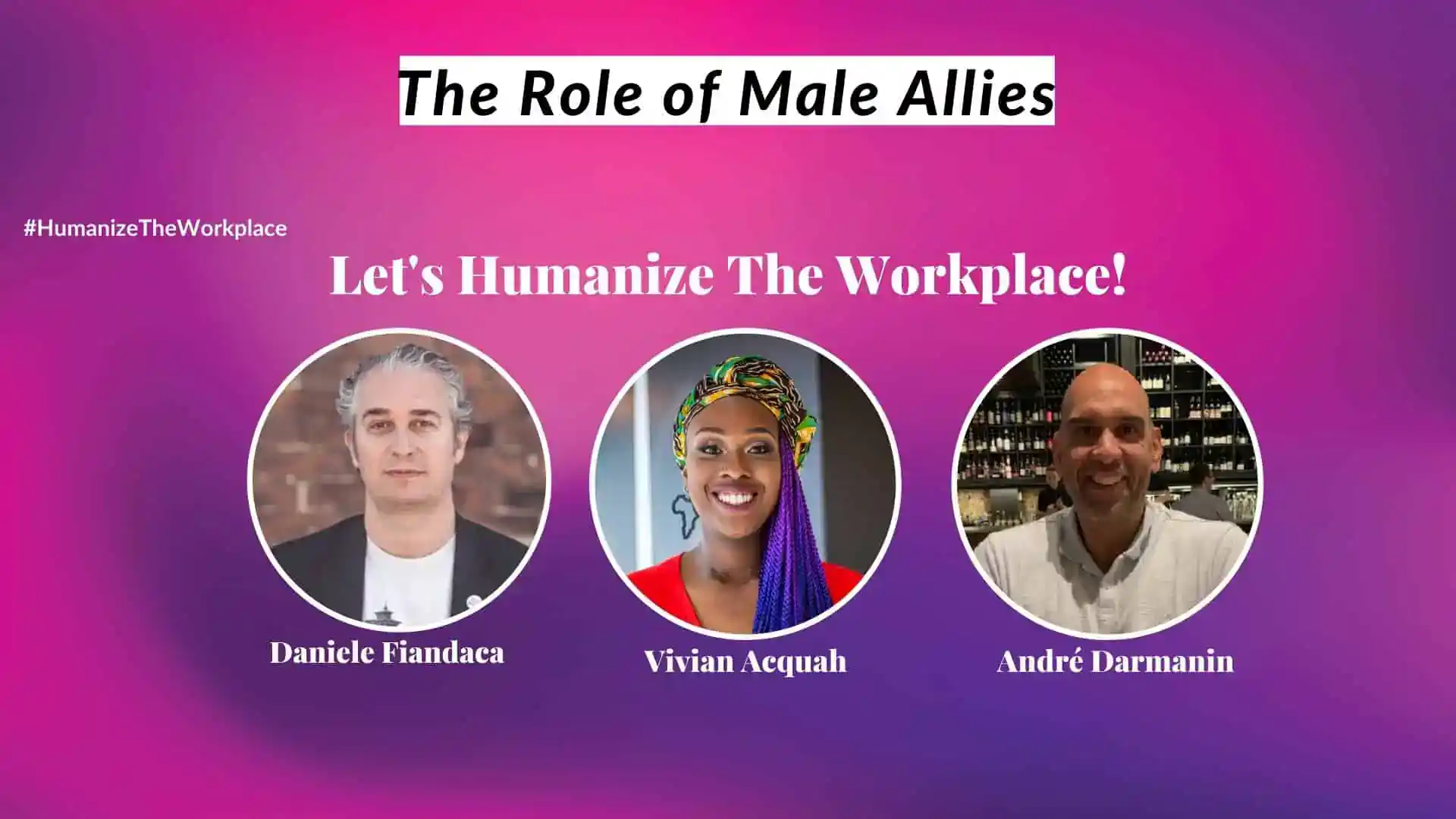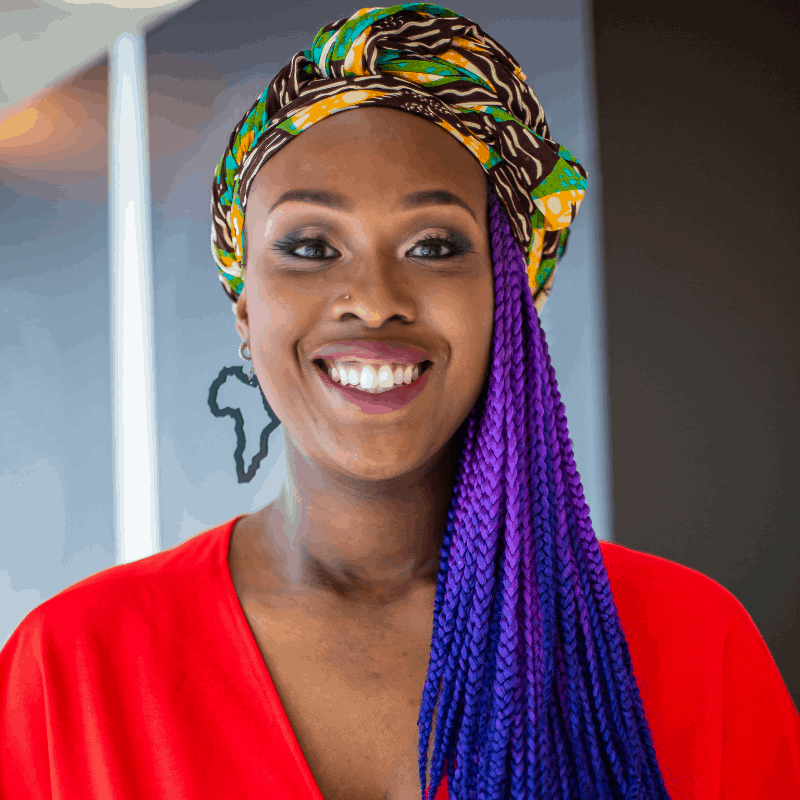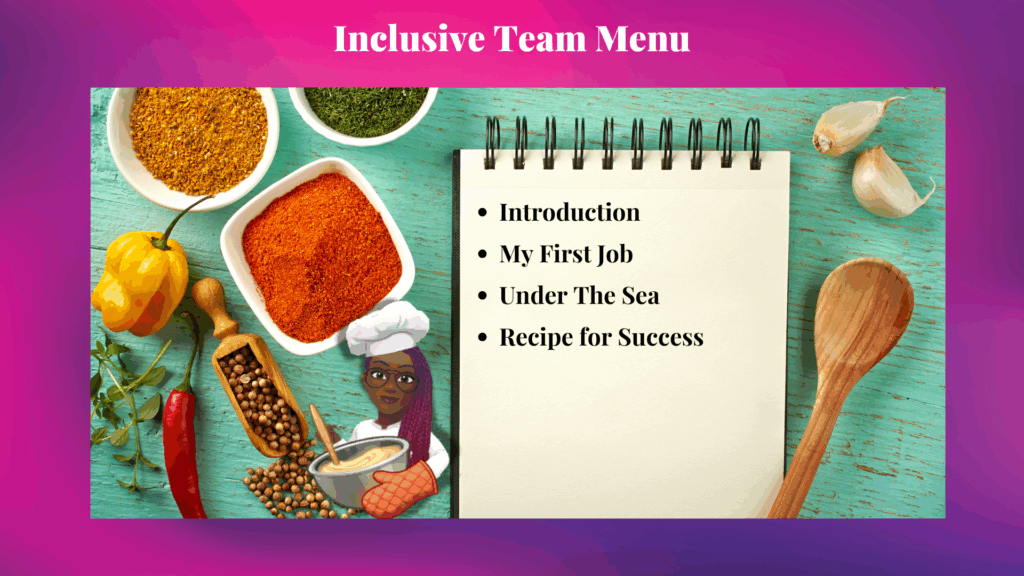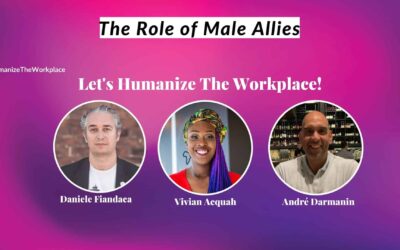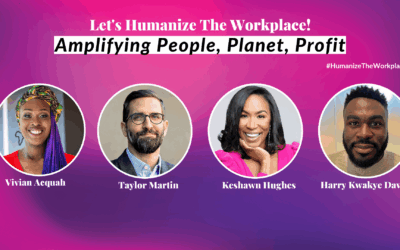February is Black History Month. Conversations about history, empowerment, and diversity are more visible now than other months of the year. Many companies and organizations are quick to jump into the conversation—some of them are genuine, while others lean towards performative action only.
There are many different topics of conversation this month. We wanted to focus on how to empower black women in the workplace. This is a necessary discussion because black women have a unique experience than other demographics. A lot of the push in recent years towards diversity has been to hire more women. Typically, this push is for white women, and black women are still underrepresented or not included.
To discuss empowering black women in the workplace, we invited three guests onto an episode of Let’s Humanize the Workplace:
- Sharnette Donacien, business clarity mentor;
- Sertrice Grice, DEI consultant;
- Jackye Clayton, thought leader and speaker;
- and host Vivian Acquah, inclusive workplace wellness advocate (DEI consultant/coach).
Together we discussed why we need to humanize the workplace and how to empower black women in a way that is meaningful and not performative or tokenizing.
Why Humanizing the Workplace Matters
The theme of the podcast, Let’s Humanize the Workplace, is to discuss exactly what that means and why it matters. We can come to the topic in a few ways. There are two general arguments for why it’s important to make work more “human”:
- The moral argument: Your employees are humans and need to be treated with respect. The workplace should be safe and inclusive because that is the moral right thing to do.
- The business argument: Studies show that companies that are more diverse and inclusive do better because they attract diverse talent and reach a larger customer base.
But it’s not an either-or question: it’s a both-and. As Sertrice Grice shared, a business is made up of people—who have human needs—and can push a business forward to success when they are thriving in the role.
It is especially important for leaders to understand how to humanize the workplace right now. In our post-COVID era, more people then ever are re-evaluating what is important to them. They’ve realized that companies might not “love” them as much as they love and put effort into the job. And, now that many jobs are not geographically bound any longer, employees are leaving in record numbers to look for a workplace that values them as people.
“You hear all of these cases about how it’s business or moral… and it’s all of the above. Your business is made up of people, they have personal needs. You got to meet those needs for them to be able to push your business needs forward.” -Sertrice Grice
More than Diversity: Inclusion and Intersectionality
The conversation from the last few years, or even decades, has been diversity, diversity, diversity. Who is missing from the table and who can we bring in to check that box? And while diversity is, obviously, so valuable, it does not provide a sense of belonging in and of itself. Inclusion is what activates diversity and makes people feel like they belong.
Vivian Acquah describes it like making dinner: you can have all the ingredients on hand (diversity), but it means nothing until you assemble them and make the food (inclusion).
Black women often struggle in their work environments because they lack inclusion. They may be brought to the team by way of a push for diversity, but they don’t fully “belong” there—they are not actively included in the workplace. This is why intersectionality is so important to the conversation. And intersectional lens helps us:
- Understand the unique experiences of black women, especially in comparison to white women.
- See each person as an individual with diverse experiences and backgrounds.
- Avoid thinking one black woman represents all black woman.
- Allow each person to show up as their unique self.
Inclusion starts by understanding that each person is an individual who brings something unique to the table. Their life and experience make them an asset to the team; making them comfortable and safe means they can use their assets to benefit the team and company.
“What you tend to see is that white women are being pushed to the forefront and black women have been held behind. So that’s when a whole intersectionality conversation comes in… I think we need to recognize that black women have different experiences and we’re coming from completely different place then white women.” -Sharnette Donacien
More than Mentorship: Sponsorship
There’s no question about it—we all need support in our professional lives! Especially for black women, it can be so influential to have someone by your side to help you navigate challenges and goals of your profession and workplace.
Typically, these relationships are mentoring relationships. This is when someone with more experience will provide insight, information, or connections to someone else to help them along their professional journey.
But mentorship doesn’t always hit the mark. It’s time for sponsorship. Sponsorship is when there is someone in your corner advocating for you when you aren’t there. A sponsor will look for promotional opportunities for you and help you get them. Black women need sponsors who will help accelerate their career and bring them to the right places that need their voice and input.
There are many benefits to both sponsorship and mentorship. Some of them include:
- Advocating for a promotion or additional responsibility.
- Advice on navigating challenges (i.e. keeping the “receipts” of a negative interaction or who to talk to who is an ally).
- Candid information on how the company and leadership view DEI.
Another way sponsorship is so important is that it paves the way for black women who come after you. By going through their own challenges, a sponsor can then advocate for change. For example, Jackye Clayton talked about how black women are often asked to re-live their trauma to provide an “aha!” moment for others. This is a painful experience that sponsors have lived through. To break that cycle, a sponsor can support other black women by advocating for wellness initiatives and focusing on mental health. They can also care for their sisters by affirming the harm and trauma done to them and point out when they are being gaslit by employers.
“I’m done with mentoring. We need sponsorship to accelerate our career growth.” -Vivian Acquah
More than Tokenization: Relationships
All these discussions around DEI can be boiled down to something quite simple: personal relationships. Starting with a conversation, a genuine desire to get to know someone who is different from you, can go such a long way to creating an inclusive and safe environment.
Black women are tokenized too often. They may find themselves as “the only” in a boardroom or office, expected to not only do their job, but also function as a representative of the entire community. Sharnette Donacien discussed how tokenization forces black women to take on more of a burden then others in the workplace. They are the employee, the mentor, the representative, the HR person… They need to be seen just as the individual that they are, there to do their job.
How can we fix tokenization? Relationships are a great way to start. By getting to know people on an individual level, we can:
- Understand their own personal goals and help encourage them to that.
- Know them as an individual instead of assuming they are the same as other black women.
- Create a psychologically safe space where we can ask tough questions and have honest conversations.
It is also through relationships that black women can determine who might be a mentor or sponsor to them. Or it can be helpful in identifying who is a true ally—someone who is there to support them and amplify their voice when appropriate.
“When you’re the only, it’s almost like you’re invisible… it’s a lonely place to be… I think we have to be intentional about making spaces and creating a culture for people that are coming after us.” -Jackye Clayton
The Way Forward
Empowering black women in the workplace should not be reserved for just one month in the year. We’re talking about it during Black History Month, but it needs to be an ongoing conversation. The way to empower black women might seem surprisingly simple: it’s to accept them as an individual, cultivate personal relationships, create an inclusive environment, and use sponsorship to accelerate careers.
And while it’s simple, so many companies and organizations seem to miss the mark. So, black women need to be careful and deliberate about where they work and where they choose to shine their light!
Because of the Great Resignation or the Great Re-Shuffling, there are so many available jobs. People can work anywhere in the world, so there is no reason to stay somewhere you are not valued. Black women need to ask questions in interviews to understand the level of diversity and inclusion in the company. They can also use recruiters to find companies that align with their values and offer a safe, inclusive environment.
We talk about this because each black women have a voice and a superpower to share with the world. Empowering black women is the way to create positive and lasting change in our companies and societies.
—
We talk about all-things diversity, equity, and inclusion (DEI) on Let’s Humanize the Workplace. Make sure to check out the YouTube channel for more inspiring and important conversations. Also take a look at Amplify DEI summit, to continue to expand your knowledge and amplify DEI in your workplace!
A tribute to Ketanji Brown Jackson
Judge Ketanji Brown Jackson’s Advice To Younger Generations
Latest Post
- The Great Resignation: How Employees and Managers Should Respond
- Level UP DEI! 5 Practical Leadership Lessons To Activate In 2022
- The Good, the Bad, and the Ugly: Reflections on DEI in 2021
- Amplify DEI (Diversity, Equity & Inclusion): The Story, Inspiration, and Vision
- Rising Voices to Amplify Diversity, Equity, and Inclusion
